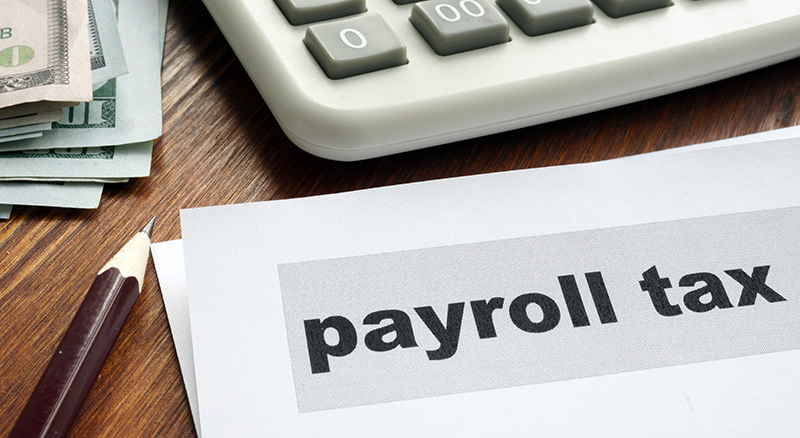My business has unpaid federal payroll tax. What can I do?
June, 27 2022 by Steve Banner, EA, MBA
What you must do is take action right away to address your situation. The IRS takes payroll tax debts very seriously and has the power to impose some very strong penalties for businesses who fall behind in their obligations in this area. That’s mostly because the payroll taxes that your business withholds from the salary of its employees each pay period are supposed to be held in trust temporarily on behalf of the employees until the funds are credited to the income tax, Social Security and Medicare accounts of each person. In other words, the money belongs to the employees, and you are betraying their trust if you do not send the correct amounts of payroll taxes to the U.S. Treasury on a regular basis. To put it even more bluntly, you are defrauding your employees if you do not pay your payroll taxes in full as scheduled.
Many small businesses assign the handling of their payroll to an outside vendor so that they do not have to deal with the finer details of the various state and federal withholding that is required in their location. This eliminates the need for a payroll person or department and allows the enterprise to focus its efforts more fully on its products and/or services. However, the business still retains the final responsibility and is potentially liable for penalties if its payroll vendor fails to make full and timely tax deposits.
Penalties may apply not only if you do not make required deposits on time, but also if you make deposits for less than the required amount. However, penalties may not apply if a failure to make a proper and timely deposit was due to reasonable cause and not to willful neglect. This means that if you do receive a penalty notice, you can provide an explanation of why you believe reasonable cause exists.
The federal income, social security, or Medicare taxes that you must withhold as an employer are often referred to as “trust fund taxes.” Thus, the trust fund recovery penalty may apply if these taxes are not withheld or not paid in full to the U.S. Treasury. The penalty is 100% of the unpaid trust fund tax. If these unpaid taxes cannot be immediately collected from the employer or business, the IRS may impose the trust fund recovery penalty on all persons determined to be responsible for collecting, accounting for, or paying over these taxes, and who acted willfully in not doing so.
By now, I am sure you can understand why I said earlier that immediate action is needed to address any shortfall of federal payroll tax payments. The IRS may have notified you about an amount of unpaid payroll taxes, and you will need to quickly determine whether this assertion is correct. The IRS may have made an error and failed to credit one or more recent payroll tax payments to your account. Or your third-party payroll vendor may have made a mistake on a recent payment or missed it entirely. Or your own internal payroll person may have miscalculated and sent the wrong amount to the Treasury. To avoid possible penalties, you will quickly need to uncover the source of the difference between your records and the IRS records.
Of course, the last thing any operating business wants to deal with is the sudden need to drop everything and start discussions with the IRS about a deficit in payroll taxes. Fortunately, you don’t have to handle a situation like this on your own. An obligation-free, cost-free evaluation with one of our experienced professionals at TaxAudit’s Tax Debt Relief Assistance program will help you understand the options available for you to get things back on the right track. This short video by one of our Tax Attorneys offers further insight into payroll tax debts and how we can help you take action.






